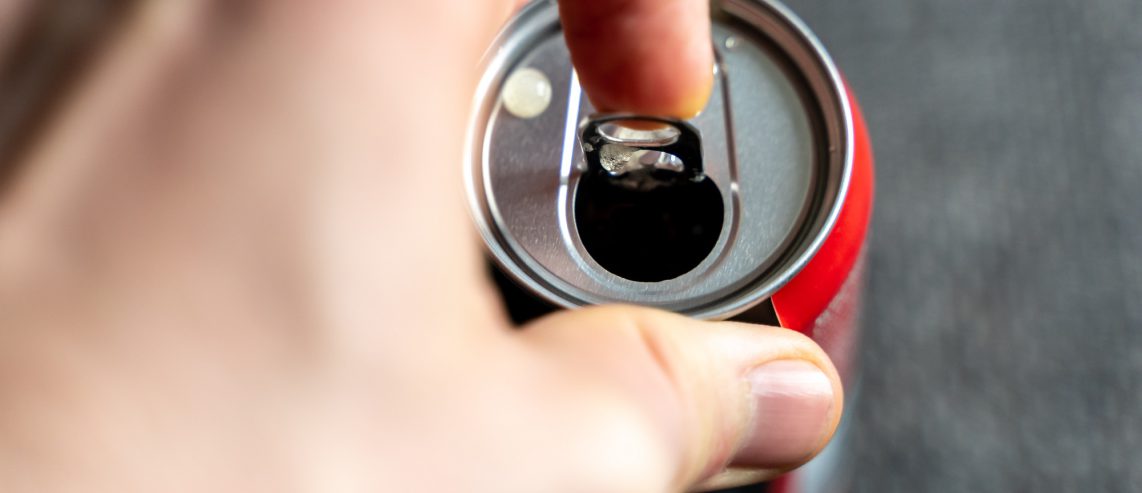A popular stimulant, caffeine gives you a boost of energy. It’s why your morning coffee or tea helps wake you up and feel more alert. But it’s also in a wide range of foods and products, including chocolate, sodas, energy drinks, supplements, and medications.
If you’re not careful, you may get more caffeine than your body can handle. Too much caffeine can cause short-term and long-term health issues. A caffeine overdose can also trigger fatal heart issues.
Here’s how to spot symptoms of over-caffeination and stay out of the danger zone.
Symptoms of Over-Caffeination
Short-term symptoms include:
- Jitteriness or anxiety.
- Hyperactivity.
- Eye twitches or muscle tremors, such as shaky hands.
- Nausea or upset stomach.
- Lack of appetite.
- Headache.
- Dizziness.
- Depression.
- Insomnia.
Long-term problems include:
- Irritability and mood changes.
- Increased stress hormone levels.
- Needing higher doses of caffeine to feel alert.
- Difficulty quitting other substances, such as nicotine.
- Difficulty limiting alcohol use when combined with caffeine.
How Does Caffeine Affect the Heart?
For most people, caffeine is safe. The U.S. Dietary Guidelines for Americans recommend adults limit caffeine intake to 400 milligrams a day. An average 8-ounce cup of coffee contains 95 milligrams.
You may react differently to caffeine than someone else does. How your body metabolizes caffeine depends on several things. These include your age, physical and mental health, genetics, medications you take, and whether you smoke.
Caffeine stimulates your central nervous system. When it comes to heart health, coffee is good for you in some ways and bad in others. More research is necessary to determine how much is beneficial.
An analysis of three studies published in Circulation: Heart Failure found drinking coffee daily may reduce your risk of heart failure. People who drank one or more cups of coffee daily had a lower risk of heart failure. But people who drank decaffeinated coffee had an increased risk.
The American Heart Association says there’s “not yet enough clear evidence to recommend increasing coffee consumption to decrease risk of heart disease.”
Following this analysis, a study presented at the AHA’s Scientific Sessions had different results. It tracked participants in real time using monitors for their heart rhythm, steps, and blood glucose.
People who had more than one coffee drink a day had 54% more premature ventricular contractions. This type of irregular heartbeat, which feels like skipping a heartbeat, starts in your heart’s lower chambers. Having more of these irregular heartbeats can increase your risk of heart failure, the study authors noted.
On the other hand, participants who consumed coffee had fewer episodes of supraventricular tachycardia. This is a rapid heart rhythm that starts in your heart’s upper chambers. Having more of these episodes increases your risk of atrial fibrillation.
Caffeine Overdose
It’s also possible to overdose on caffeine, a serious and sometimes fatal situation. This is known as caffeine toxicity or caffeine intoxication.
It’s rare to overdose on caffeine from drinking coffee or tea alone, according to StatPearls. The biggest reasons for fatal caffeine overdose and toxicity are:
- An intentional overdose of medicines and supplements containing caffeine.
- Consuming too many energy drinks that contain caffeine.
Caffeine toxicity can cause:
- Cardiac arrest.
- Kidney failure.
- Rhabdomyolysis. This is a potentially fatal condition in which muscle fibers break down and leak into your blood.
Symptoms of caffeine overdose include:
- Vomiting.
- Convulsions.
- High blood pressure.
- Racing heart or irregular heart rhythm.
- Disorientation and hallucinations.
If you have symptoms of caffeine overdose, get immediate medical help. Go to the emergency room or call 911.
How To Limit Caffeine
To avoid symptoms of over-caffeination, follow these tips:
- Don’t have more than the U.S. Dietary Guidelines-recommended 400 milligrams of caffeine a day.
- Switch to decaffeinated coffees and teas.
- Count all the caffeine you get from drinks, foods, and medication. This caffeine chart from the Center for Science in the Public Interest lists caffeine amounts for coffee drinks and some other products.
- Avoid caffeine at least six hours prior to bedtime.
- Read all medication and supplement labels. Decongestants, bronchodilators, performance enhancers, energy supplements, appetite suppressants, and mental stimulants all have caffeine in them.
- Read labels on energy drinks. Some have more than the recommended daily amount.
- Never give caffeine to infants or young children.
Recipe serves: Indicate how many or how much this recipe makes. E.g. “24 cookies”
Ingredients
Please use a only a bulleted list of ingredients with each ingredient having it’s own bullet.
Directions
Please use a numbered list, displaying each step in it’s own number.
Nutritional Information
Serving size: Indicate what makes up an individual serving size for nutritional purposes. E.g. “2 cookies”
Calories (per serving): The number of calories in each serving. Numbers only. E.g. “250”
Additional nutritional information to include
Sources
Coffee May Reduce Risk of Heart Failure. American Heart Association News. Feb. 9. 2021. Link.
Caffeine Toxicity. StatPearls. National Library of Medicine. Link.
Caffeine-Related Deaths: Manner of Deaths and Categories at Risk. Nutrients. May 2018. Link.
U.S. Dietary Guidelines for Americans, 2020-2025. Link.
Drinking Caffeinated Coffee Has Both Beneficial and Harmful Short-Term Health Effects. American Heart Association Scientific Sessions 2021 (November), LBS.03 Link.
Association Between Coffee Intake and Incident Heart Failure Risk. Circulation: Heart Failure. Feb. 9, 2021. Link.
Nutrition for Young Adults
Never Miss a Beat!
Subscribe to Our HealthBeat Newsletter!
Thank you for subscribing!
You can now select the specific newsletters you'd like to receive.
You are already subscribed.
Subscribe to more newsletters in our email preference center.
Sorry, an error occurred. Please try again later.
Get Healthy Tips Sent to Your Phone!
About UPMC
Headquartered in Pittsburgh, UPMC is a world-renowned health care provider and insurer. We operate 40 hospitals and 800 doctors’ offices and outpatient centers, with locations throughout Pennsylvania, Maryland, New York, West Virginia, and internationally. We employ 4,900 physicians, and we are leaders in clinical care, groundbreaking research, and treatment breakthroughs. U.S. News & World Report consistently ranks UPMC Presbyterian Shadyside as one of the nation’s best hospitals in many specialties and ranks UPMC Children’s Hospital of Pittsburgh on its Honor Roll of America’s Best Children’s Hospitals. We are dedicated to providing Life Changing Medicine to our communities.


